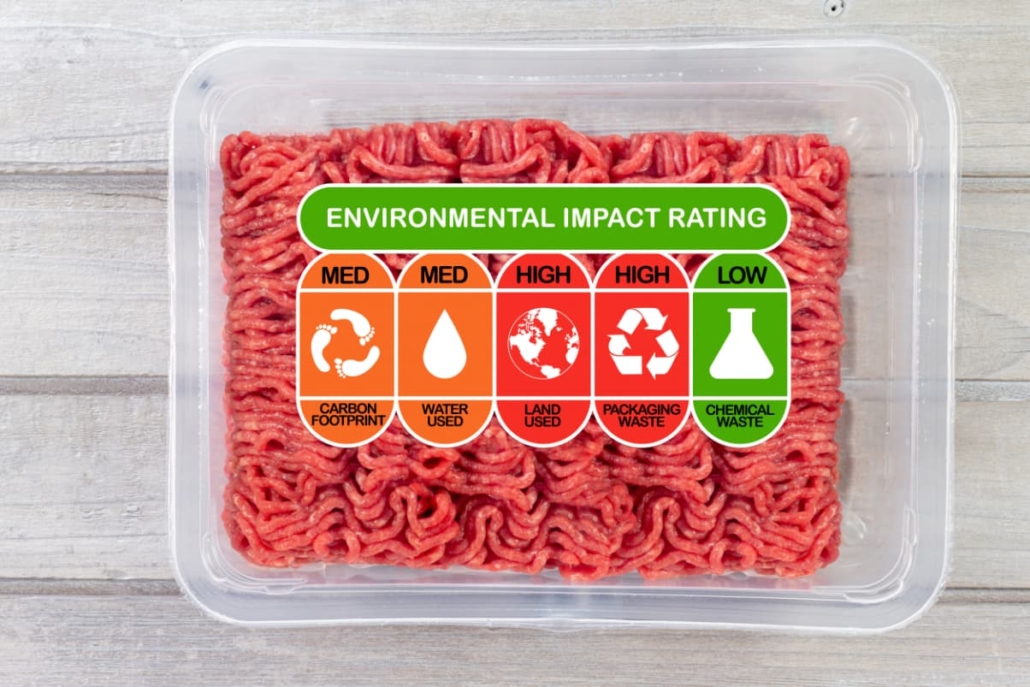Environmental impact scoring alliance launched to transform food industry
In a significant development for the food industry, the non-profit organisation Foundation Earth has been integrated into EIT Food, the world’s largest food innovation community. This merger aims to establish internationally recognised standards for assessing the environmental impact of food products, a crucial step towards a more sustainable food system.
EIT Food launches International Alliance for Food Impact Data
EIT Food, supported by the European Institute of Innovation and Technology (EIT), a body of the European Union, has announced the creation of the International Alliance for Food Impact Data. This alliance will be responsible for developing internationally adopted and accepted standards for the environmental scoring of food products.
The integration of Foundation Earth into EIT Food will provide the necessary expertise and resources to advocate for these important standards. Foundation Earth has been at the forefront of the drive towards independent environmental scoring of food and drink products, with the support of Europe’s major food and drink businesses.
Richard Zaltzman, Chief Executive Officer of EIT Food, expressed the significance of this move, saying: “Environmental data is a key lever of change for food systems transformation. We are absolutely delighted to integrate the knowledge and capacity of Foundation Earth into EIT Food, which will enable us to take strides towards our shared mission of transforming the food system with credibly collected, measured and evaluated impact data.”
Jago Pearson, the outgoing chairman of Foundation Earth, highlighted the progress made by the organisation over the last three years: “Our work now provides the building blocks for providing consumers with the information they need to make more environmentally-friendly buying choices and food producers with the credible information they need to innovate in a more sustainable way.”
Addressing the lack of coordination and standards
The International Alliance for Food Impact Data aims to address the lack of standards and coordination between stakeholders at the EU and international level, which has hindered the roll-out of environmental scoring standards for the food and drink industry.
Cliona Howie, the Chief Executive of Foundation Earth, who will now become the Director of Data Impact Systems at EIT Food, emphasized the importance of this collaboration, stating: “Joining forces with EIT Food will foster wider collaboration across all those fragmented initiatives that are individually working on the environmental foot-printing of food and drink products. Those efforts are currently constrained by limited resources, which has slowed progress towards a single European-wide system.”
Aligning with EU policy
The International Alliance for Food Impact Data will initially consider the EU policy landscape, recognising that any future standards mandated by the EU will likely be of the highest level. This will ensure that companies and supply chains can apply one standard for compliance across multiple geographies.
Transforming the environmental credentials of the food industry
This new alliance inherits the critical building blocks put in place by Foundation Earth since 2021. The integration of Foundation Earth and EIT Food provides a platform to put into operation the vision of a coordinated, harmonised, single standard for the environmental scoring of food and drink that serves as a public instrument across Europe and beyond.
Cliona Howie emphasised the transformative potential of this alliance: “Our focus will be on driving large scale impact that works across the whole food system and transforming the environmental credentials of the continent’s food and drink industry.”
The establishment of the International Alliance for Food Impact Data represents a significant step forward in addressing the complex challenges of environmental data, scoring, and governance in the food industry. By developing internationally recognised standards, this alliance aims to enable informed decision-making, improve environmental and sustainability reporting, and empower consumers to make more environmentally conscious choices when it comes to their food purchases.



